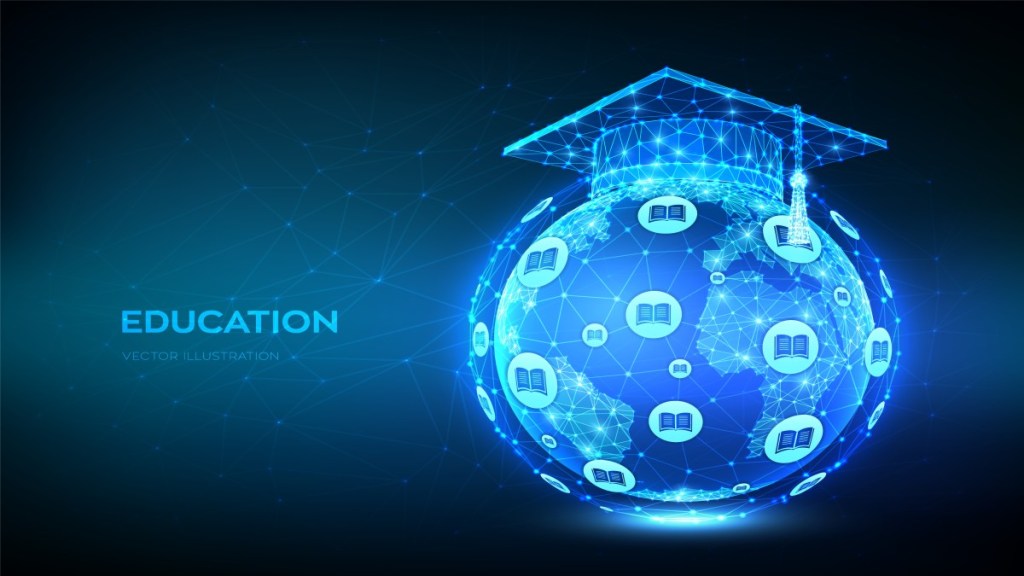By Dinesh Kumar Poobalan
Education in India has always been a wide topic as it has witnessed plenty of transformation over the years. From multiple challenges and scepticism in adopting technology to evolution in this space, India has undergone various phases.
The Economic Survey 2022-23 puts school enrolment in India at 26.5 crore, with 19.4 lakh more children getting enrolled in primary to higher-secondary levels. There is a rise in the number of children enrolling for school education at all levels. While this is a welcome development, many other concerns arise. India, with its population size, cannot celebrate the data because another number provides information on the other side of the coin.
A nationwide study carried out by the Union government brings grim news. The Foundational Learning Study 2022, conducted in March by NCERT and the Ministry of Education in partnership with UNICEF, has found that 37% of students enrolled in the third standard have limited foundational numeracy skills, such as identifying numbers, while 11% lack the most basic knowledge and skills. This has been the largest study in terms of scale at the foundational level of education.
The NCERT also conducted a mental health survey to gauge the well-being of students, especially after the pandemic. It found studies, examinations and results are major causes of anxiety among school students. In fact, during the COVID-19 pandemic, 43% of students reported mood swings, 38% said that they faced changes in sleeping patterns, and 18% also reported financial problems at home. The information was collected from students across genders and grades between January to March 2022.
The findings of the FSL have shone a light on the dismal state of education in India. Based on this study, the government now looks to set the baseline for NIPUN Bharat (National Initiative for Proficiency in Reading with Understanding and Numeracy). NIPUN Bharat aims to improve foundational learning and establish reading proficiency benchmarks for fluency and comprehension for each of the languages being assessed.
In addition to poor learning outcomes, systemic challenges are prevalent in the country, including a shortfall of nearly 2.5 million teachers and poor retention as students move into higher grades & the report projects that India needs 11.16 lakh additional teachers to meet the current shortfall.
With advancements and technology emerging across industries, Indian education has never been left behind. Technology engulfed the education system, and significant adoption of edtech players was observed in India. Over decades, the education landscape has undergone an unprecedented shift. Post the pandemic, the sudden shift to online and remote learning accelerated the adoption of edtech solutions and created a significant demand for digital education tools. The growing use of technology has prompted child-centred methods and the government to focus on building a system that aligns with the global evolution of school education.
India’s education technology (ed-tech) industry has emerged as a dynamic force, revolutionising traditional learning methods and paving the way for a global education transformation. Powered by technological advancements, changing learning preferences and growing demand for accessible education, Indian ed-tech spaces have transformed the domestic educational landscape and made significant strides globally.
According to the India Brand Equity Foundation (IBEF), the Indian EdTech sector is expected to reach USD 30 billion by 2031, from USD 700-800 million in 2021. It is already transforming India’s teaching and learning landscape, heralding an era of personalized learning, flexibility and engagement.
The Indian government has played a pivotal role in supporting the ed-tech ecosystem through policies encouraging innovation and entrepreneurship. Initiatives like the National Education Policy 2020 have paved the way for a more flexible and technology-driven approach to education. It aligns with global education trends by emphasising flexibility, multilingualism and technology integration. By promoting holistic learning, competency-based assessment and research, NEP 2020 lays the foundation for India’s more inclusive and future-ready education system. By fostering a conducive regulatory environment, the government has enabled ed-tech startups to flourish and contribute to the broader goals of the education sector. Let’s discuss how the evolution has been embraced in the industry;
Embracing technology: Technology has become a cornerstone of the ed-tech revolution, facilitating the creation of child-centric learning methods. Widespread internet access and innovative applications have democratised education, making it accessible to learners across diverse socio-economic backgrounds.
Blended learning: The emergence of traditional classroom instruction with online classes and experiential learning has been a game-changer in the edtech landscape. This hybrid approach offers flexibility and accessibility while maintaining the essential elements of face-to-face interaction.
Focus on emerging tech: Trending technology, Artificial Intelligence (AI), Machine Learning (ML), and coding are introduced in primary classes to ensure students are equipped with essential skills for the future.
Internships and vocational education: Introducing internships and vocational education ensures that students acquire theoretical knowledge and gain real-world experience, enhancing their employability and understanding of various professions.
Smartboards and smart screens: NEP 2020 recognizes the transformative power of technology and digital education. The policy encourages the integration of smart boards and smart screens in classrooms, fostering an interactive and engaging learning environment.
In conclusion, India’s ed-tech industry has emerged as a beacon of innovation, transforming the way people learn and acquire skills. By leveraging technology to overcome traditional barriers, we are shaping the future of education in India and influencing global trends. We need to appreciate the positive changes that have taken place in the process of bringing better education to the speedy generations. Thanks to the advancement of technology, it is becoming necessary to channel this knowledge that today’s kids have. As the industry matures, its ability to adapt, collaborate, and address challenges will be pivotal in sustaining its leadership in the global education revolution.
The author is the CEO and CTO of Greatify.
